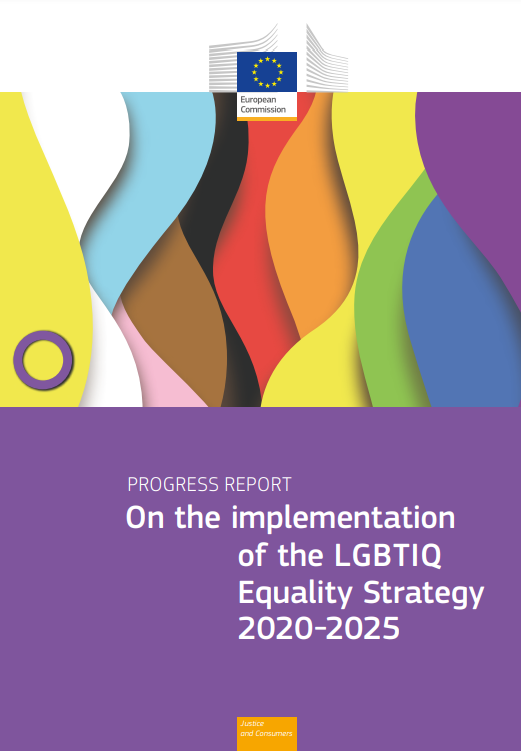Time for Poland to leave the EU as rising costs now exceed benefits

The ban on internal combustion cars alone is such a violation of freedom and free choice that on its own it should be reason enough for Polexit. But there are many other good reasons to leave the EU as well.
As part of the ongoing campaign in the run-up to Poland’s October 15 parliamentary elections, Slawomir Mentzen, the leader of the Euroskeptic liberal-conservative New Hope party that is in alliance with nationalists within the right-wing Konfederacja Wolność i Niepodległość group (Confederation – Liberty and Independence, commonly called simply “Konfederacja”); and Ryszard Petru, founder and former head of the left-liberal, Euro-enthusiastic Nowoczesna (Modern) party, recently had a radio debate on economic issues.
At one point, Petru asked a simple question: “If there was a referendum today on Poland’s exit from the European Union, just as there has been in Britain, and you only had the option to vote yes or no, please make a clear declaration: Do we stay in such an imperfect European Union or shall we leave it?”
Instead of answering directly, Mentzen began to give evasive answers, until time ran out.
This was wholly unnecessary. In the current situation, Poland loses more than it gains from its membership in the EU, and the balance will continue to deteriorate rapidly in the coming years. There is therefore only one answer one could give: let’s leave the EU. I
t seems that Mentzen, for electoral reasons, did not want to admit this officially and explicitly, fearing he could lose some voters. This is a mistake, because the vast majority of Konfederacja supporters realize the destructive nature of Poland’s membership in the EU.
Climate policy
First of all, the EU’s energy and climate policy brings Poland nothing but losses. And these are gigantic losses.
Anna Moskwa, the Polish Climate and Environment Minister, said in an interview with Rzeczpospolita that as part of Poland’s need to adapt to the EU’s energy and climate policy, by 2040 726.4 billion zlotys (about 158 billion euros) will have to be spent on power generation capacity alone.
But it is no longer just about the energy sector and energy-intensive industries, which have been compelled to take part in the European Trading System (ETS) for emission allowances and have been forced to buy absurd carbon allowances in order for Poland to give up coal and gas in favor of windmills and photovoltaics.
There is also the EU’s methane regulation, which will lead to the rapid and uncontrolled liquidation of Poland’s coal mining industry. Beyond the issue of the loss of energy security are the billions that have already been flowing out of Poland to international financial speculators, [who have been making money on carbon allowances] for years.

But this is just a prelude.
We are now facing ETS2, that is, the extension of CO2 allowances and their corresponding certificates to construction, transportation, and agriculture, which, according to a report by the Warsaw Enterprise Institute, will cost 21 billion zlotys (some 4.5 billion euros) a year.
The EU’s entire “Fit for 55” strategy is expected to cost Poland 200 billion euros.
It includes the requirement to achieve the illusory target of zero emissions for buildings, as well as the planned ban on combustion engines and fossil fuel boilers, alongside other regulations of a similar nature.
All this will result in the average person’s simply not being able to afford to support himself and his family. Electricity, heating, land and air transportation, and above all, food products will become much more expensive.
The EU’s Energy Performance of Building Directive (EPBD), which forces all buildings to undergo thermal upgrading, has already been dubbed an “expropriation directive.”
This is because it is estimated that the thermal modernization of just one flat so that it meets the new EU standards will cost 10 to 50 thousand euros. And the European Parliament has passed legislation to ban the sale and rental of housing that does not meet the so-called “carbon footprint” from 2030.
Recovery Funds (Next Generation EU)
The second reason why Poles should choose to leave the EU now is the EU Recovery Fund, which the Polish government unfortunately enthusiastically agreed to (remember those billboards on the streets about the 770 billion zlotys negotiated for Poland at the EU level?).

On the one hand, it implies a loss of sovereignty due to joint borrowing by EU member states, and on the other it introduces new EU taxes in violation of the Polish constitution.
To date, Poland has not received a single euro under the Next Generation EU Recovery Fund, as Brussels keeps demanding that so-called milestones be met as preconditions for disbursements. In the meantime, the dispute with the EU over the Polish Supreme Court’s Disciplinary Chamber alone cost Poland nearly 556 million euros. The money is not being received, but Poland is already paying interest to repay the Recovery Fund’s debts, and from the beginning of 2021, it is paying an EU tax on non-recycled plastic (about 1.7 billion zlotys – i.e., about 400 million euros – annually) as well.
Meanwhile, Brussels is beginning to run out of funds. The European Commission has unveiled a plan to increase the European Union’s own revenue by tens of billions of euros annually. To this end, new taxes are to be imposed, including taxes based on corporate tax and a border carbon tax. The Commission also wants to take a share of ETS revenues, and more Euro-taxes are on the way.
Environmental, Social, and Governance (ESG)
The third reason for leaving the EU is something that is just beginning to be talked about, and most people have no idea about it yet.
In 2018, the costly, unnecessary, and hard-hitting BDO – Poland’s “register of entities marketing products and products in packaging, and managing waste” – went into effect, in keeping with EU law, but this was just a prelude to something much more serious. I am referring to ESG reporting concerning environmental, social, and governance practices.
In the Polish-language report titled “Under the Burden of ESG: The Cost of ESG Reporting for Small and Medium-Sized Companies in Poland,” which was published in April 2023, the Warsaw Enterprise Institute noted: “Companies directly covered by the EU’s Corporate Sustainability Reporting Directive (CSRD) will incur a cost of 1.4 to 2.6 billion zlotys each year [one euro being currently worth about 4.6 zlotys and one U.S. dollar being currently worth about 4.3 zlotys, ed.].
In addition, they will incur a one-time cost of 0.8 to 1.1 billion zlotys to comply with this regulation.
Moreover, high costs will also be incurred by companies not directly covered by the CSRD, but which are contractors employed by those with ESG reporting obligations. For Polish SMEs, this indirect cost could reach as much as eight billion zlotys a year. Small and medium-sized companies will also incur one-time compliance costs of up to 1.4 billion zlotys.”
There are likewise legitimate concerns that the CSRD will be extended to all small and medium-sized companies with up to nine employees, with the sole exception of unincorporated one-person companies.
In this situation, “the annual direct burden would be between 9.8 billion zlotys and 23.6 billion zlotys, and the one-time costs of implementing the regulations would be between 5.5 billion zlotys and 13.2 billion zlotys.” At the same time, no company needs these ESG reports for anything, and the only effect of their implementation will be that they will lose competitiveness on the international market.
Food security
Fourth reason: The European Union has an inept interventionist Common Agricultural Policy (with overregulation of the industry, as well as pathological subsidies and payouts per hectare), and additionally, EU treaties have stripped us of our trade sovereignty, which has hit Polish farmers as a result of Ukraine’s conflict with Russia.
Poland could not, in defiance of EU law, close its borders when huge quantities of grain and other agri-food products began to be imported from Ukraine.
I am in favor of free trade, but it must be carried out on fair terms. Meanwhile, Ukrainian goods are not required to meet EU standards, and thus become unfair competition for Polish farmers and companies.
Even this is not enough for the Eurocrats: the European Commission has come up with the insane idea that Poland should flood nearly 400,000 hectares of agricultural land with water in order to “restore nature.” This policy in regards to agriculture, along with the EU’s Farm-to-Fork strategy and the CO2 allowances and certificates discussed above, will dismantle our food security.
Immigrants
Reason five for Poland to leave the EU is that Brussels is forcing the admission of immigrants. During the first wave of the large-scale invasion of the European Union by illegal, mostly Arab immigrants, the Polish government was heavily criticized by European Commissioners for not agreeing to their relocation in Poland. There was supposed to be some kind of sanctions, but this eventually did not happen. Now – after the Covid-19 pandemic, and despite the Russian-Ukrainian war – the topic is back on the table in Brussels.

In June, the Council of the European Union set the minimum annual number of relocations at 30,000 people. An amount of at least 20,000 euros per person will have to be paid for not accepting migrants. This will not only cost money, but also breed internal problems, bringing about a loss of security for Poles.
Interestingly, the EU Council is not interested in the millions of war refugees from Ukraine that Poland has taken in. They are not included in the balance sheet. Where has our sovereignty gone? The same question should be asked over the issues of the Bialowieża Forest and the Turów energy complex, whose closure was requested by the Court of Justice of the European Union (CJEU).
Gender ideology
The sixth reason to leave is the Charter of Fundamental Rights and the EU’s increasingly aggressive forcing of gender and LGBT ideology on its member states, which is alien to Poland and in total contradiction with the conscience and professed faith of the vast majority of Poles.
The idea is to eliminate tradition and our identity, and to completely transform society into a helpless, indoctrinated mass. To this end, among other things, payments of EU subsidies that are due are stopped when they are destined for those local governments that do not succumb to such Marxist pathologies.
Back in 2015, the European Commission adopted a list of actions regarding progress on LGBT equality. It included demands that, if implemented, would violate the constitutional orders of the member states, such as forcibly imposing an order to legalize so-called gay marriage.
Now, despite the fact that, under the EU treaties, family law is the exclusive competence of the member states, the Commission has drafted a regulation that makes it mandatory for EU countries to recognize each other’s decisions establishing same-sex [biological] parentage.

As if that weren’t enough, the draft directive on preventing and combating violence against women and domestic violence proposes criminalizing deliberate incitement to violence and hatred on the Internet on the basis of so-called “gender,” which, according to Poland’s Ordo Iuris Institute, could serve as a pretext for significantly restricting freedom of expression.
EU lawmakers also demand in the directive, among other things, the promotion of “appropriate” behavioral changes in society and the use of “gender-sensitive” language by officials.
As we read in the book “The Church in the Face of Revolution: The Marxist March through the Institutions of the Catholic Church” (Kościół w obliczu rewolucji. Marksistowski marsz przez instytucje Kościoła katolickiego) by Dariusz Rozwadowski: “The European Union, as a result of a long march through the institutions, has been captured by Marxists and is implementing their vision of a world without God, where man is reduced to the level of an animal that can be easily controlled, step-by-step.”
The author adds that “The European Union, taking the ’Ventotene Manifesto’ [written by the Italian communist Altiero Spinelli in favor of European integration] as a signpost of unification, has declared war on the Catholic Church and Christian values. It has abandoned its own heritage, committed apostasy, and, in the footsteps of the Roman Empire, is persecuting Christians – even though, unlike those Romans who had not yet learned about the religion, it is well aware of the spiritual, moral, cultural, and social good that Christianity has given to Europe.”
This is certainly not the kind of Union we entered [ìn 2004].
And many, many other reasons to leave the EU
The above points, of course, do not exhaust all the problems posed to us by the European Union. There are many such difficulties.
For example, there is the issue of the need to recycle waste, which has forced an absurd reform in garbage collection, resulting in prices for these services rising by several hundred percent. There are also the various requirements for emission standards and the mandatory installation of unnecessary systems in cars that make them much more expensive.
We are struggling with the General Data Protection Regulation (GDPR), and meanwhile the upcoming third Payment Services Directive (PSD3) will result in companies and authorities having access to all our data from electronic payments.
We all remember the Euro ban on traditional light bulbs, mercury thermometers, and plastic cutlery. Plastic straws have likewise been banned, which companies such as McDonald’s have replaced with paper tubes. Brussels is further considering a ban on traditional toilet paper. Toilet paper is to be allowed only when produced from straw. The idea of banning mushroom and fruit picking in the forests has also been circulating.
An EU regulation is set to take effect in 2024 according to which companies exporting their products to the European Union will have to prove that their goods are not linked to deforestation, which could get businesses in many industries, such as paper, into real trouble.
On the other hand, with regulations such as the mobility package, the original four freedoms on which EU cooperation is based are being increasingly eroded, whereas the Polish economy had benefited greatly from access to the European Economic Area’s more than 400 million consumers.
And on top of that, Brussels wants to take over more areas in which it has no competence, such as the judiciary and, most recently, the management of forests. In this way, it undermines the sovereignty of its member countries in order to build a federal state.

“We don’t want your Lisbon Treaties”
The above clearly proves and sufficiently explains why there can be only one answer to Richard Petru’s question. Membership in the European Union means a gigantic burden on the Polish economy, Polish companies, Polish public finances and, above all, on the average Pole himself, not to mention restrictions on freedom and the forced transformation of our mentality.
Even more importantly, these are costs we have to pay against the ratified treaties and against our will, and we don’t need them for anything.
One of the EU bans was commented upon by Szczepan Wójcik, an entrepreneur and chairman of the Institute of Agricultural Economics: “I am not particularly frightened by the vision of an EU without combustion engines. I am quietly hoping that this modern caricature of the European Community, which was supposed to be a common pursuit of our development and economic cooperation between nations, will be a bad memory by then.”
The German-led policies of the European Union are ruthlessly destroying the Polish economy, sucking the juices out of it, and draining the pockets of Polish taxpayers and consumers while hitting our freedom, security, and sovereignty hard.
The sooner we stop this process that is both extremely harmful to Poland and rapidly deepening, the better for us.
Bolder than Chairman Mentzen was nationalist MP Krzysztof Bosak, Konfederacja’s candidate for president in 2020, who said bluntly at Konfederacja’s convention: “We don’t want your Lisbon Treaties and your Charter of Fundamental Rights, which you supposedly protected us from, and which they are now blackmailing us with. We don’t want the European Green Deal, we don’t want your ‘Fit for 55’ that Polish PM Morawiecki agreed to, we don’t want the ETS that Polish PM Tusk agreed to, we don’t want the ETS2 that Morawiecki agreed to. We don’t want any of this climate Newspeak.”
This opinion piece was published in Polish in the Do Rzeczy weekly in October 2023.




